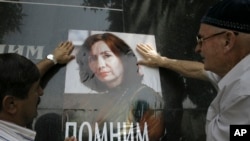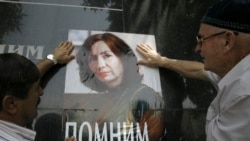Freedom of expression remains under threat in some participating States of the Organization for Security and Cooperation in Europe, or OSCE. Too many journalists in the region continue to be subject to acts of violence, and impunity for murders and other attacks is all too common.
The independent media in Russia continues to face severe obstacles, as the government of President Vladimir Putin employs state control over most media outlets. The United States, said U.S. Ambassador to the OSCE Daniel Baer, "is also disturbed by Russia's continued intimidation of media NGOs on spurious pretexts which has a chilling effect on freedom of the media. Other laws toughening punishment for vaguely defined extremism have been used to unduly restrict the exercise of freedom of expression." The U.S. calls on Russia to end the laws and practices that stifle the freedom of expression and diversity of opinion.
In Crimea, occupation authorities restrict the freedom of the media and are responsible for other human rights violations there.
In Central Asia, governments maintain restrictions on freedom of expression, including internet use and publishing online content. The United States and its OSCE partners will continue to work with the governments of the region to promote the freedom of expression and media freedom. While Kazakhstan has made some progress, more can be done by the governments of Uzbekistan, Tajikistan, and Turkmenistan.
In Azerbaijan, the U.S. welcomes the March 18 pardon and release of Bashir Suleymanli, the Executive Director of the Election Monitoring and Democracy Studies Center in Azerbaijan, as well as three others considered by Azerbaijani NGOs to have been incarcerated for their civic activism. We call on Azerbaijan to take additional positive steps in the months ahead, including the release of others considered to have been incarcerated for their civic activity. Doing so would demonstrate the government’s adherence to OSCE and other international commitments to uphold the fundamental freedoms of all its citizens.
Freedom of expression and a free media are the underpinnings of a strong, democratic society, and the U.S. calls on all participating States to fulfill their OSCE commitments fully and in good faith.






